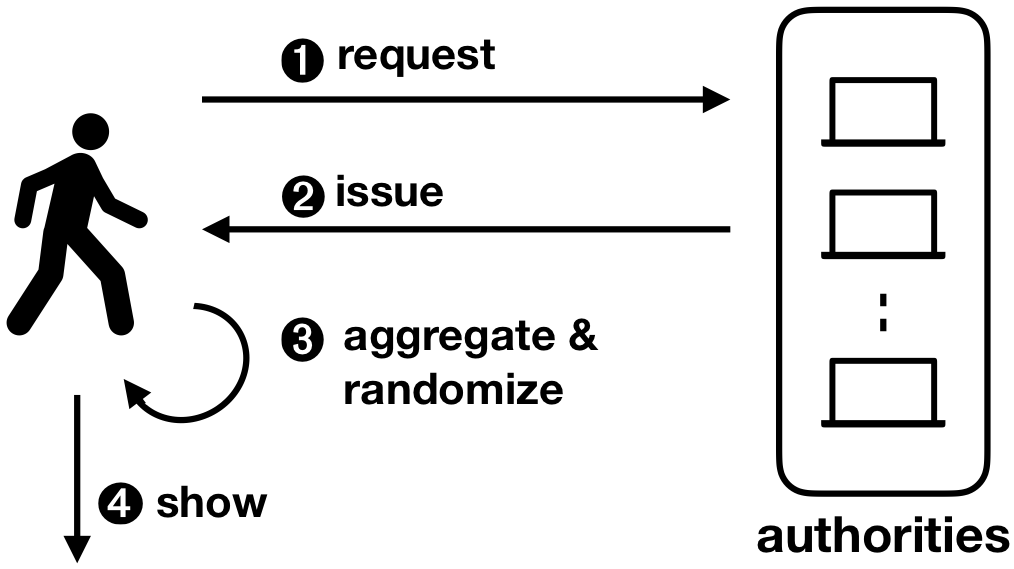An interesting new multi-authority selective-disclosure credential scheme called Coconut has been recently released, which has the potential to enable applications that were not possible before. Selective-disclosure credential systems allow issuance of a credential (having one or more attributes) to a user, with the ability to unlinkably reveal or “show” said credential at a later instance, for purposes of authentication or authorization. The system also provides the user with the ability to “show” specific attributes of that credential or a specific function of the attributes embedded in the credential; e.g. if the user gets issued an identification credential and it has an attribute x representing their age, let’s say x = 25, they can show that f(x) > 21 without revealing x.

A particular use-case for this scheme is to create a privacy-preserving e-petition system. There are a number of anonymous electronic petition systems that are currently being developed but all lack important security properties: (i) unlinkability – the ability to break the link between users and specific petitions they signed, and (ii) multi-authority – the absence of a single trusted third party in the system. Through multi-authority selective disclosure credentials like Coconut, these systems can achieve unlinkability without relying on a single trusted third party. For example, if there are 100 eligible users with a valid credential, and there are a total of 75 signatures when the petition closes, it is not possible to know which 75 people of the total 100 actually signed the petition.